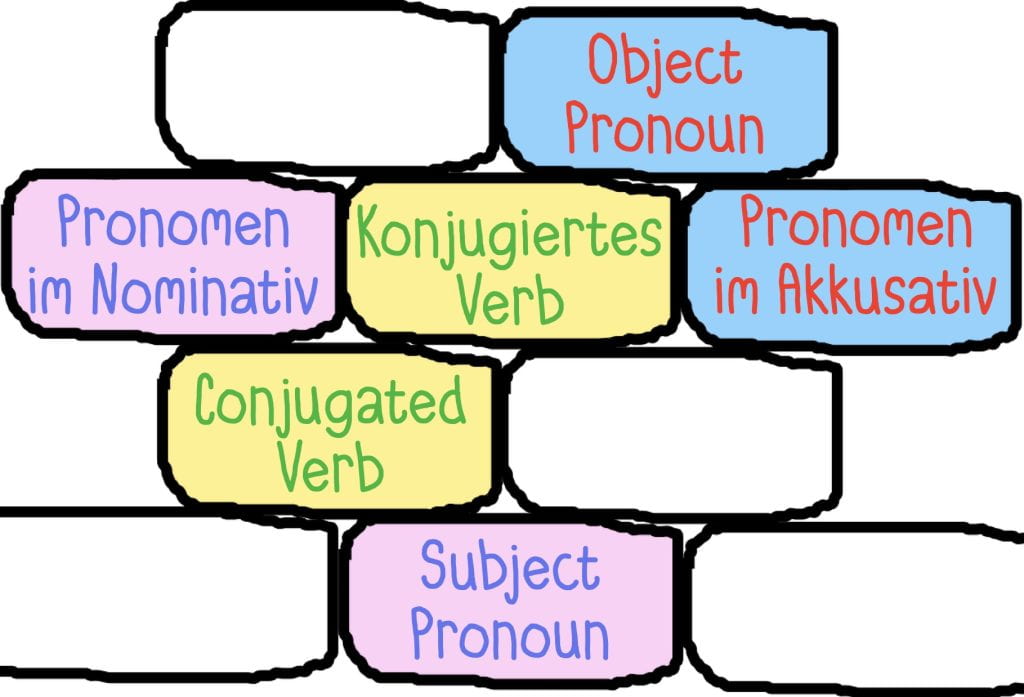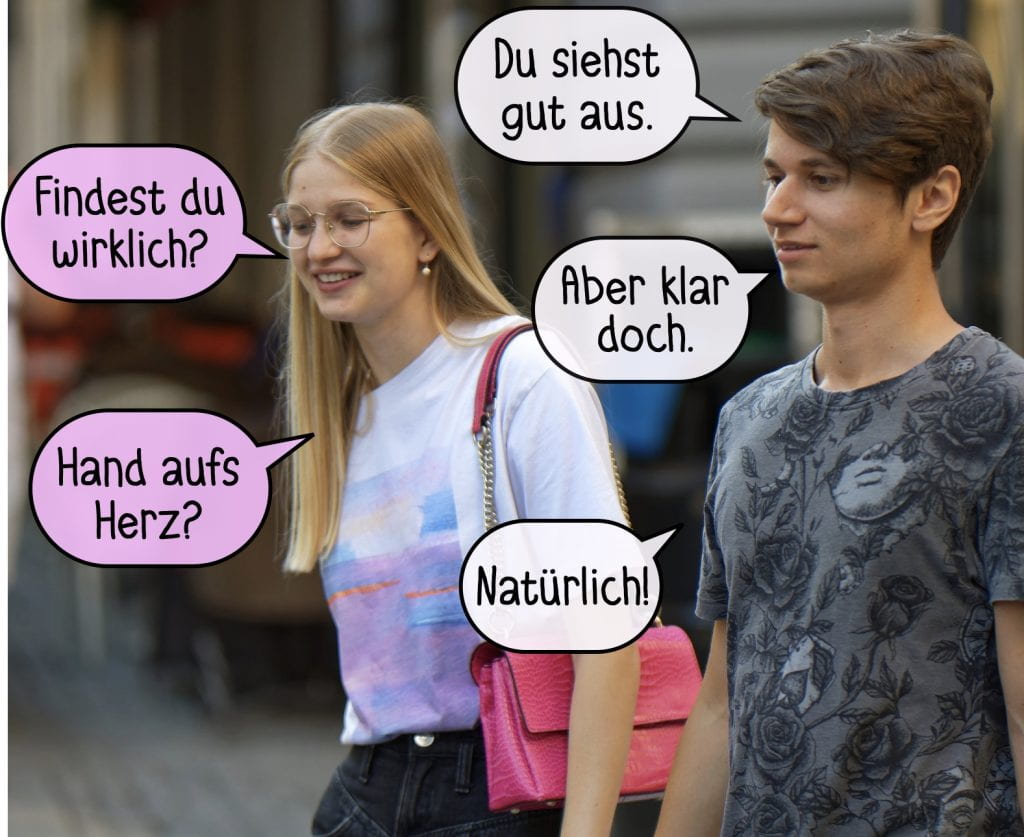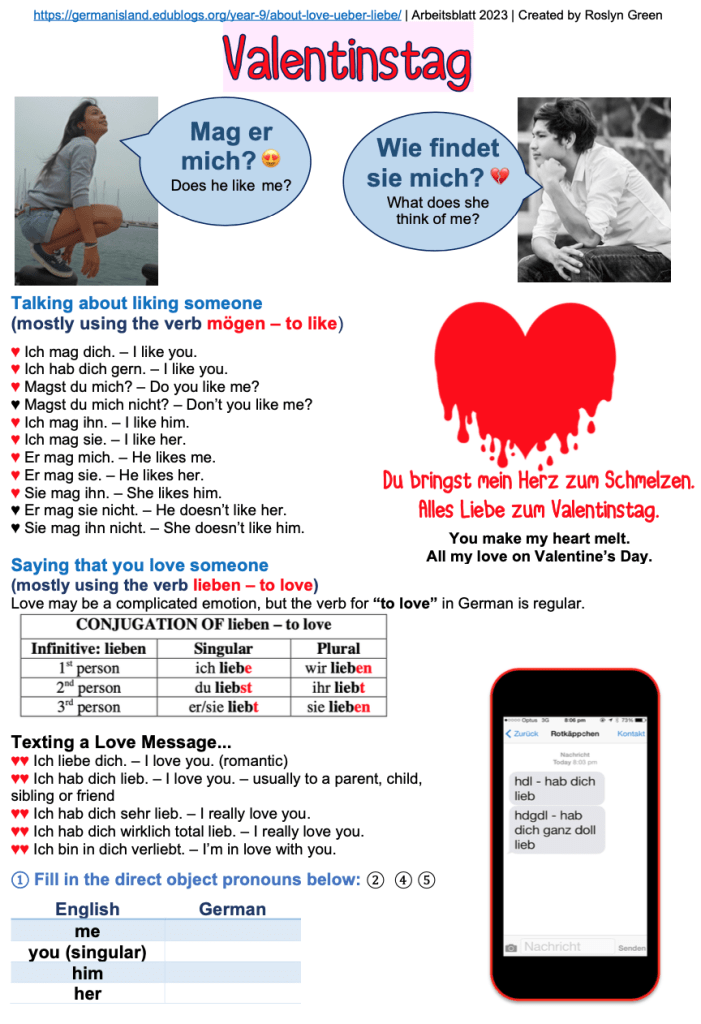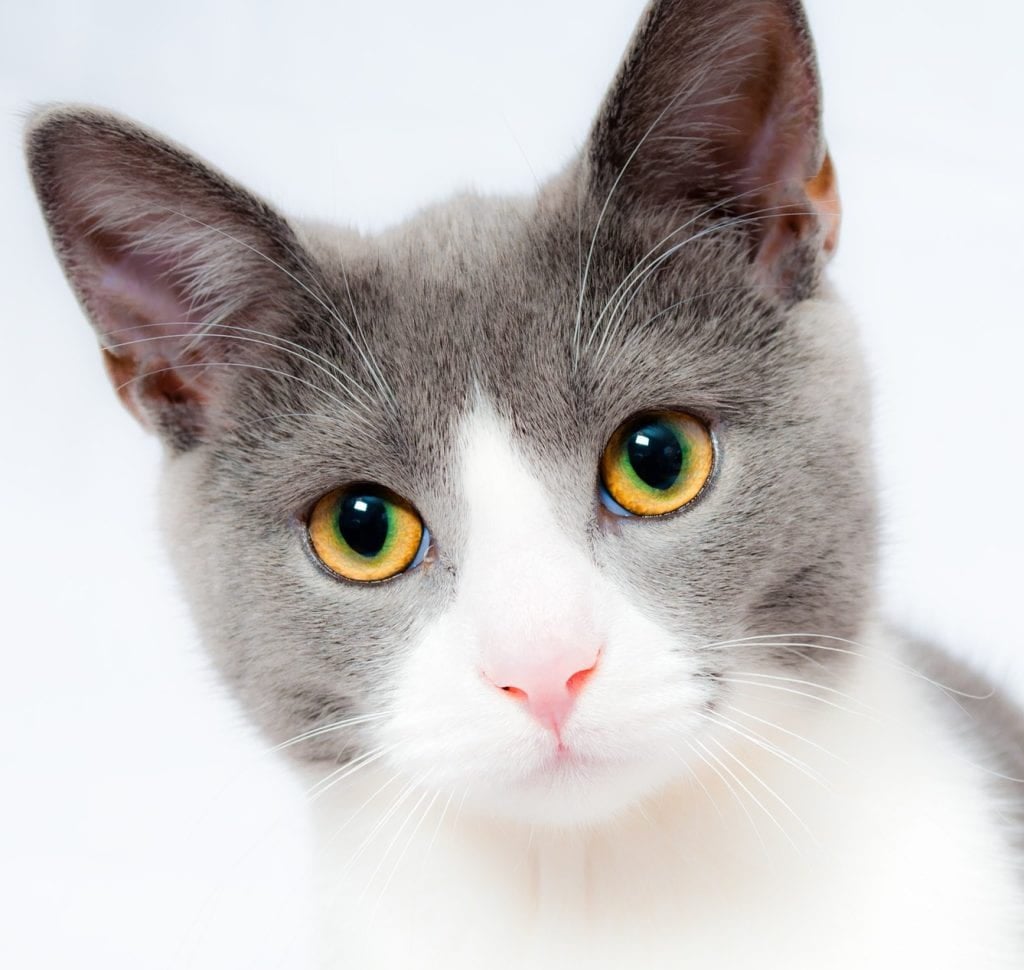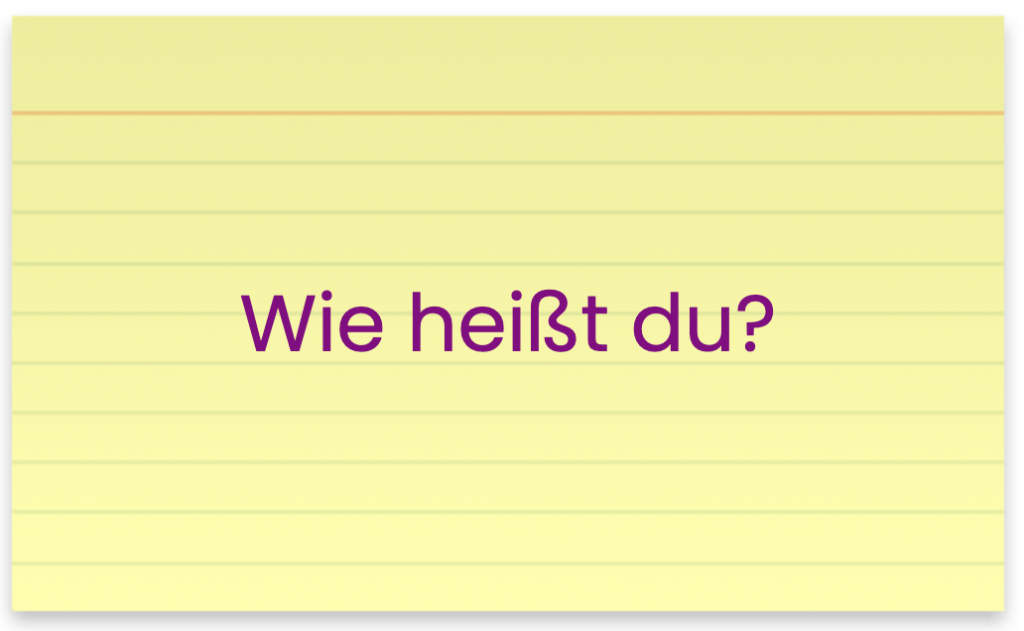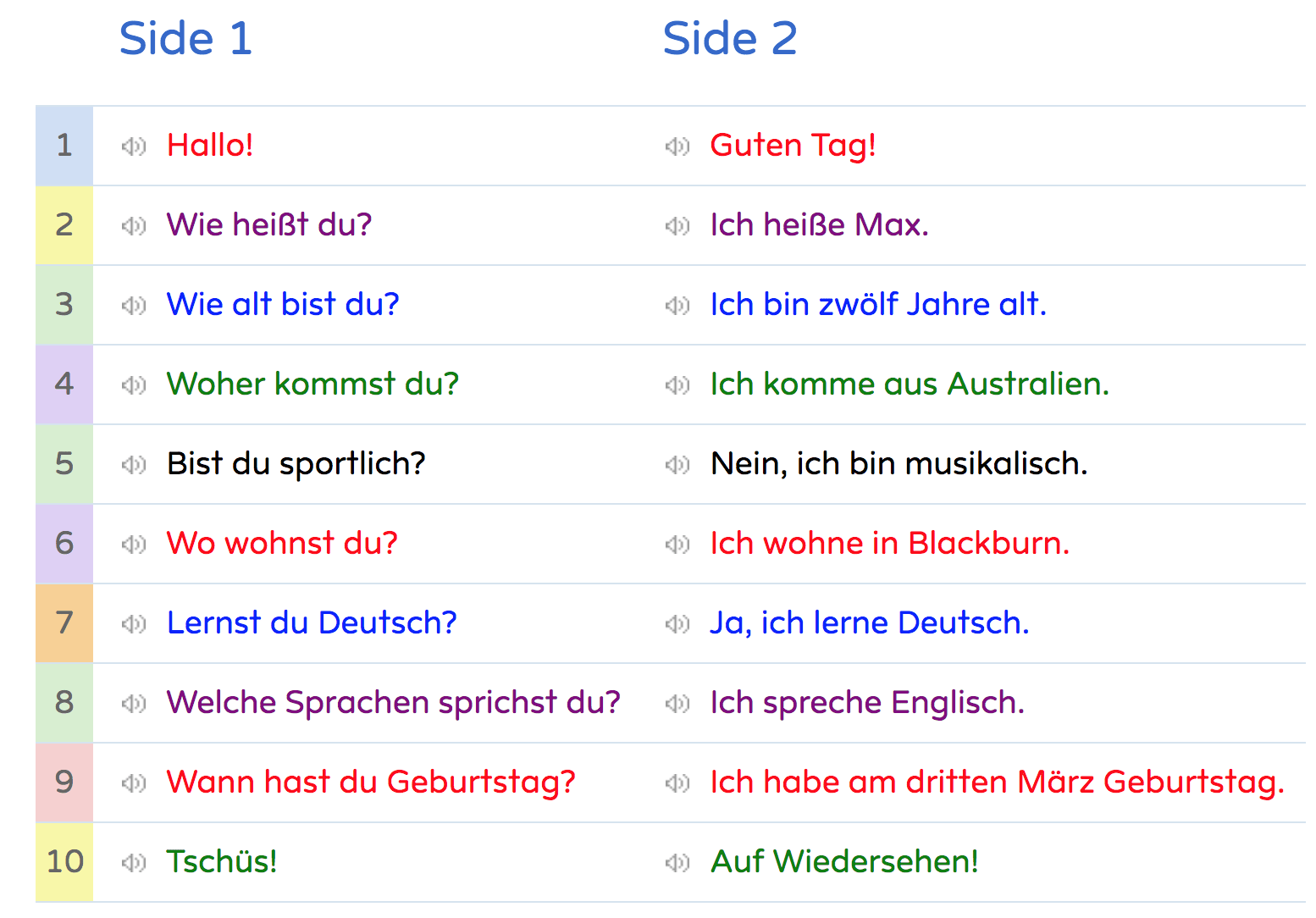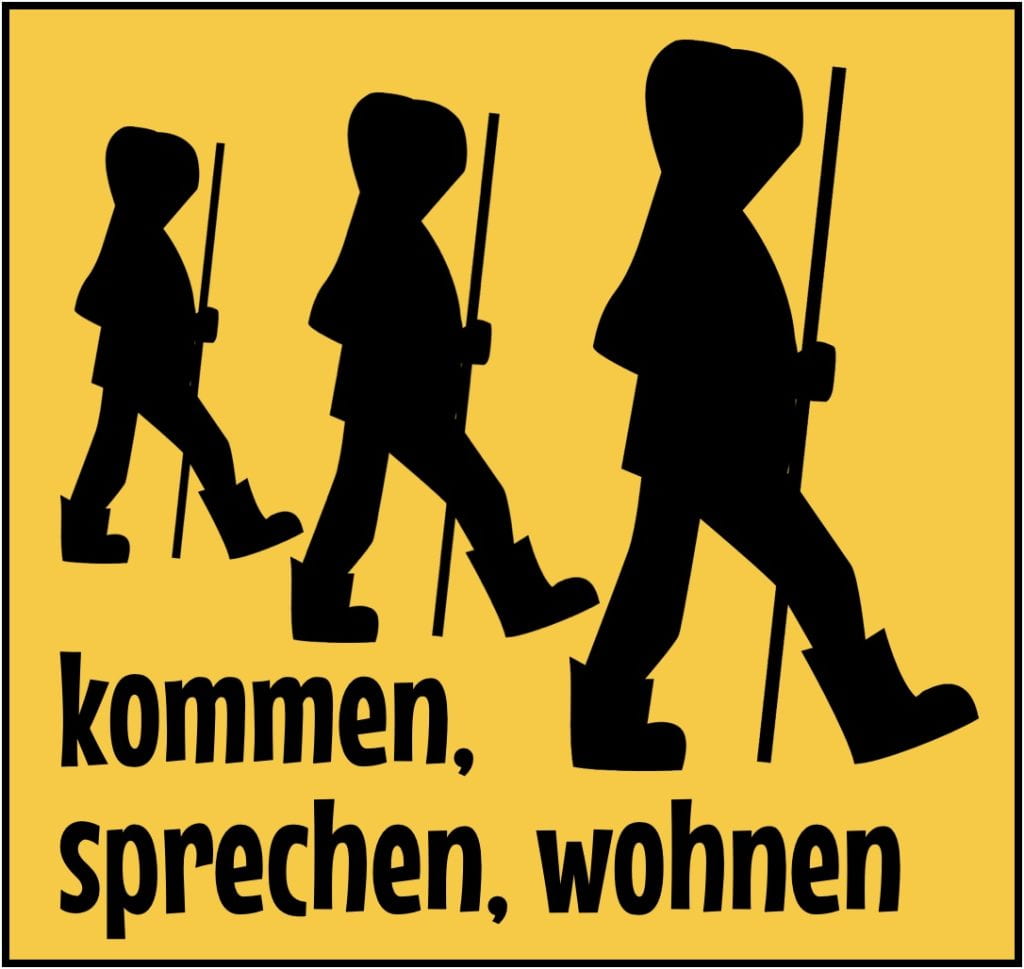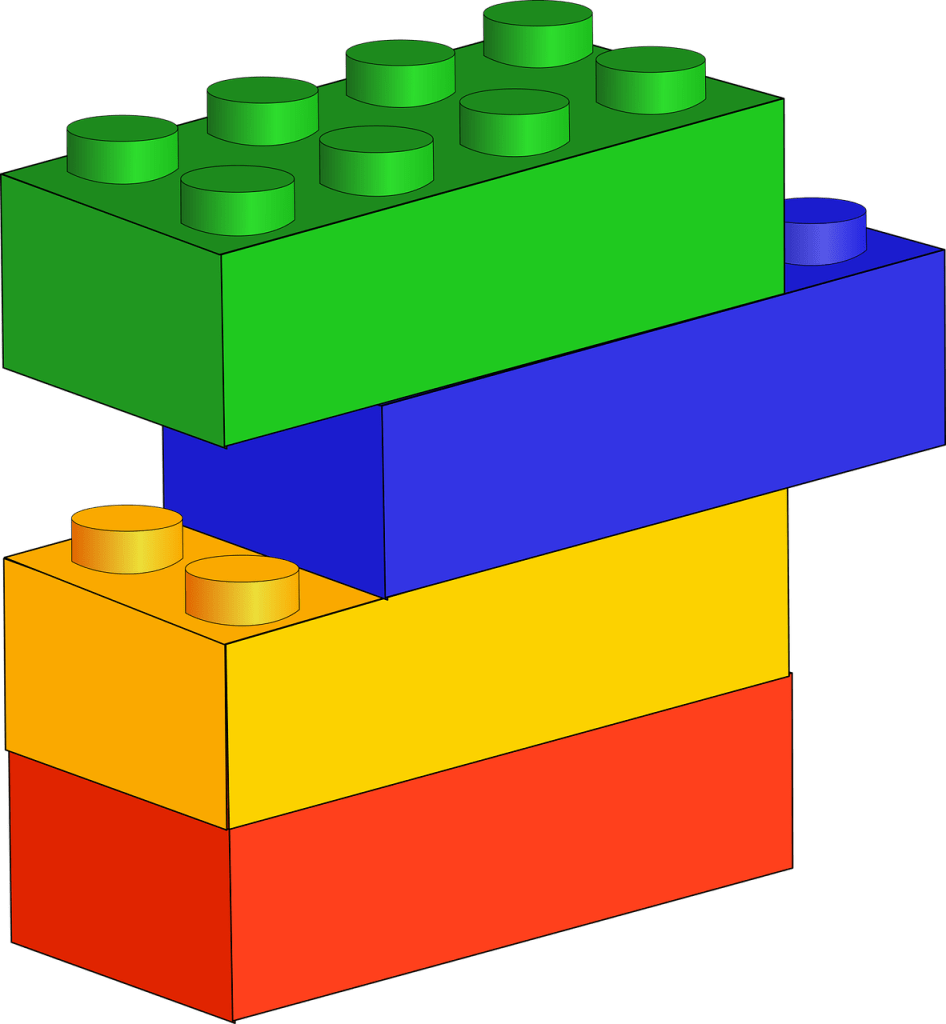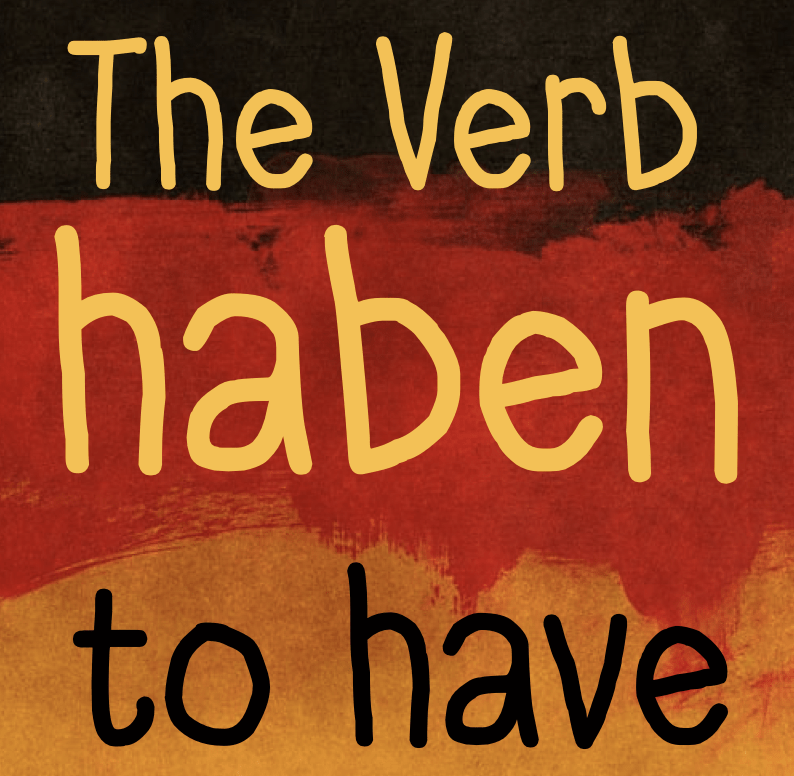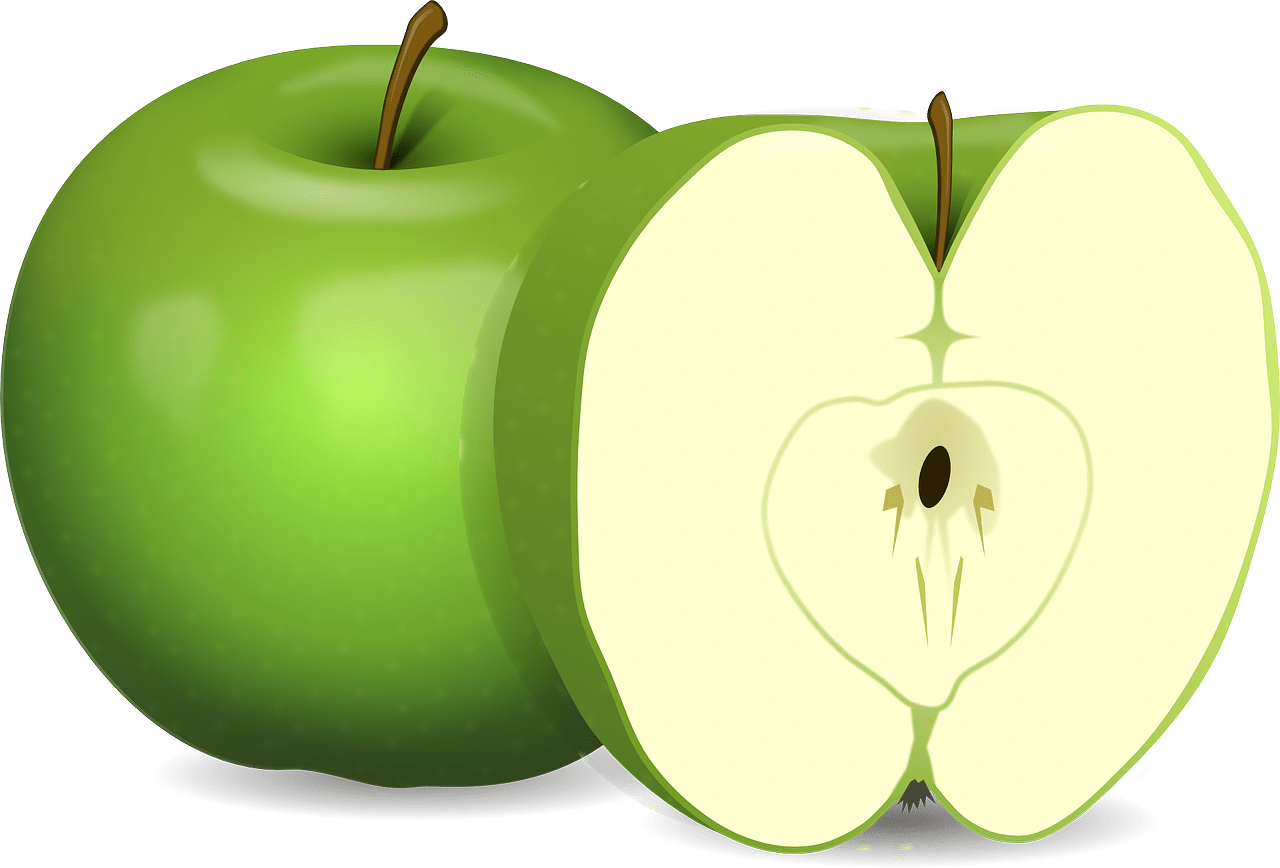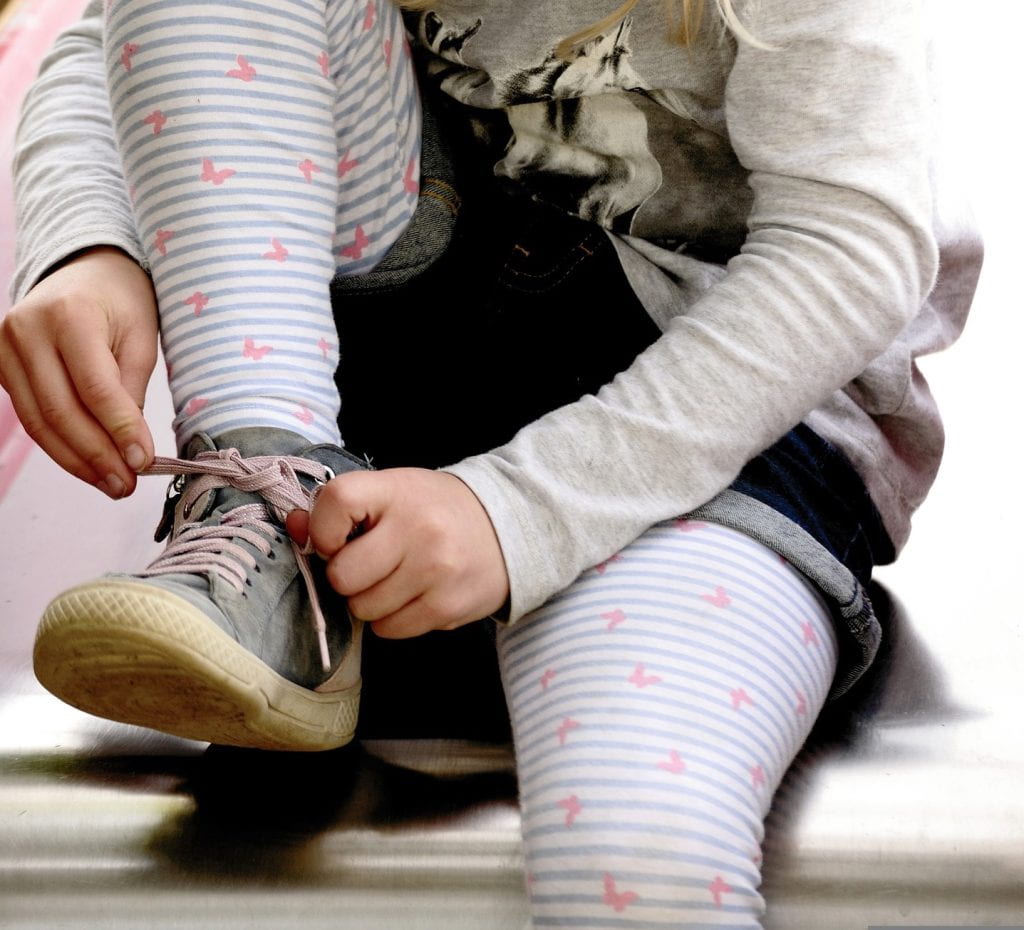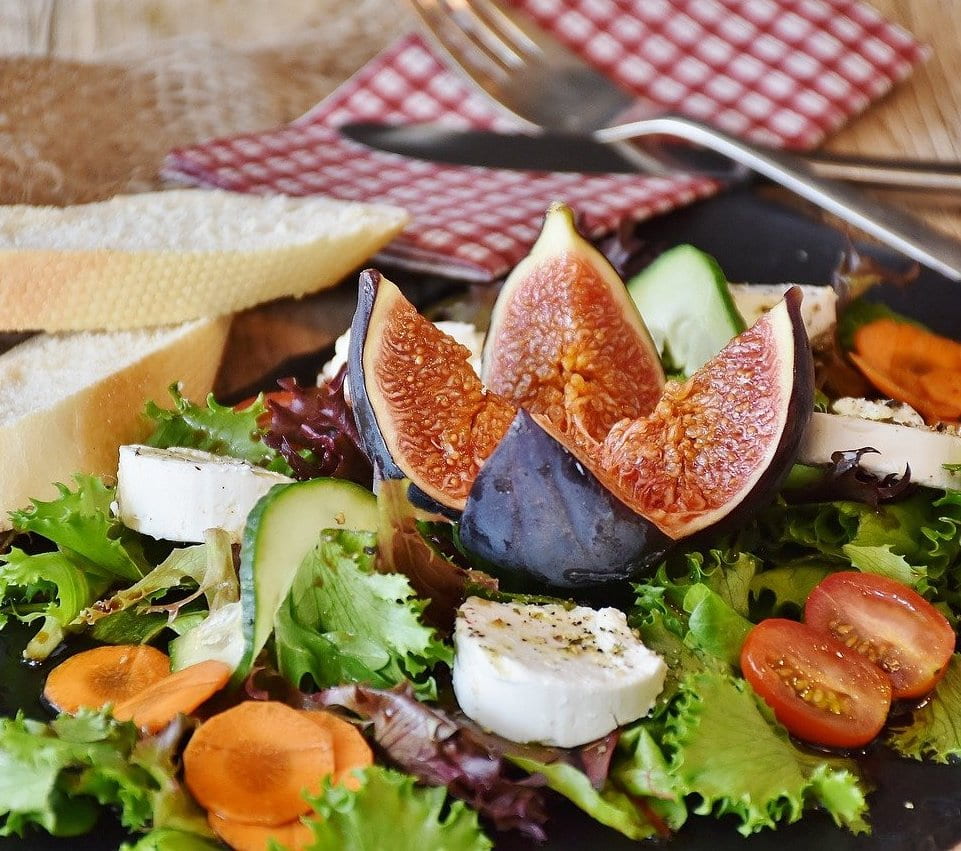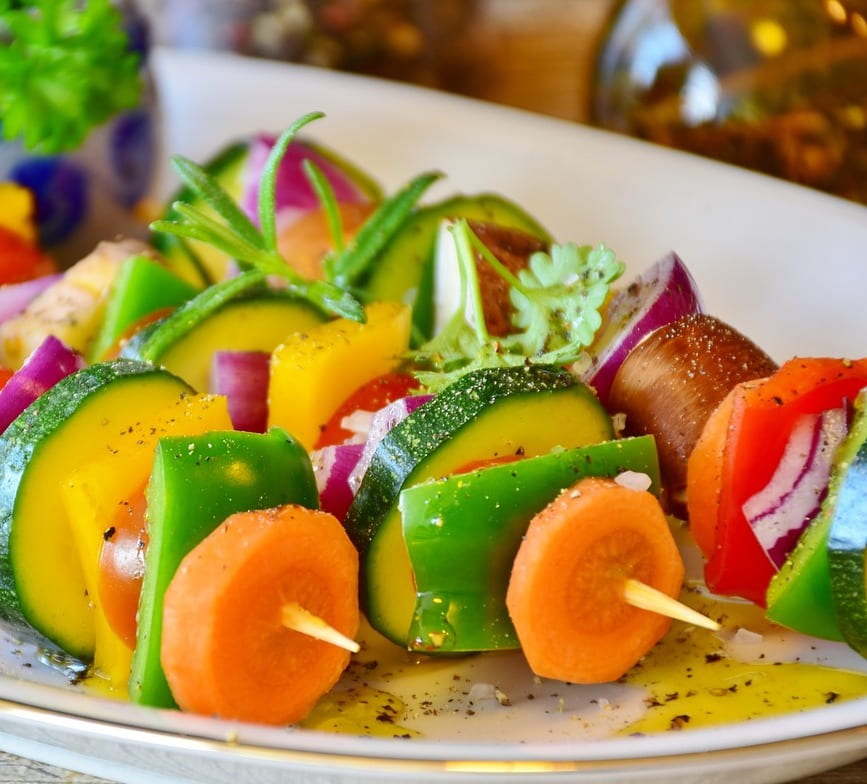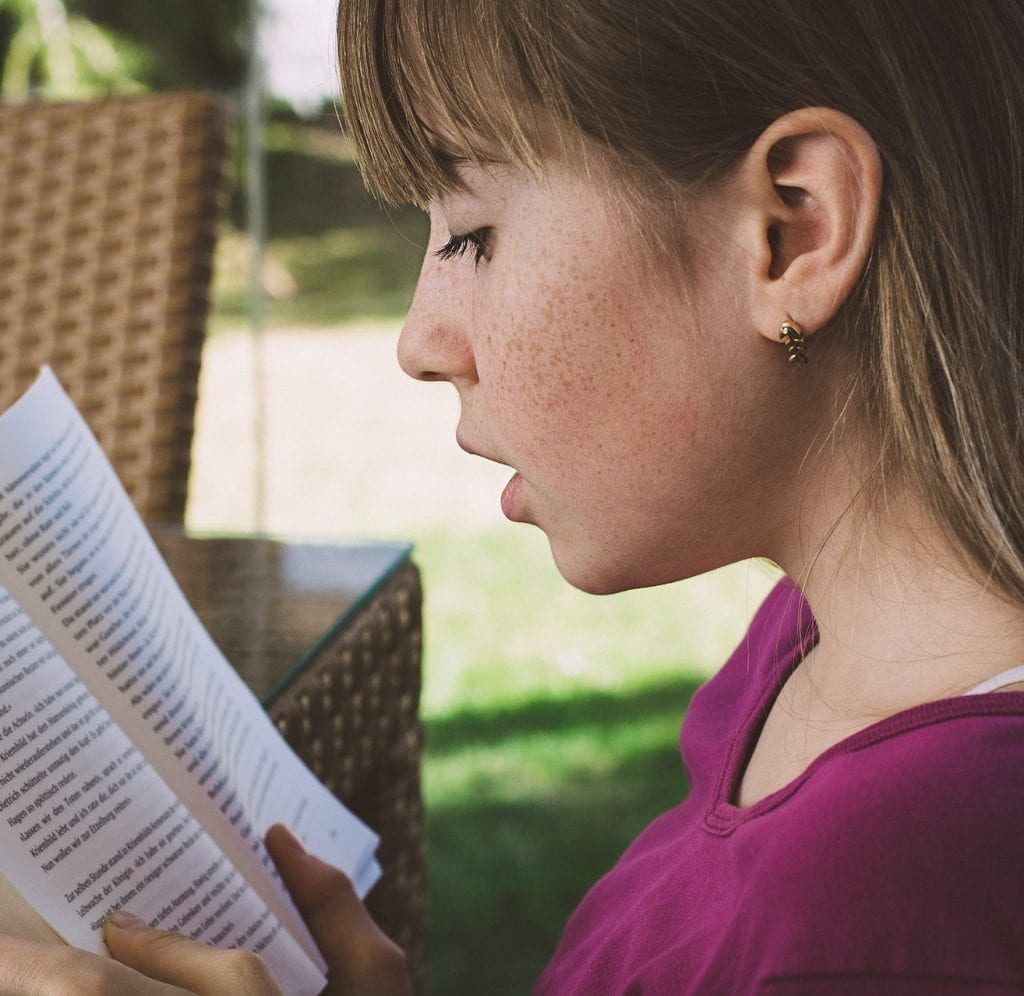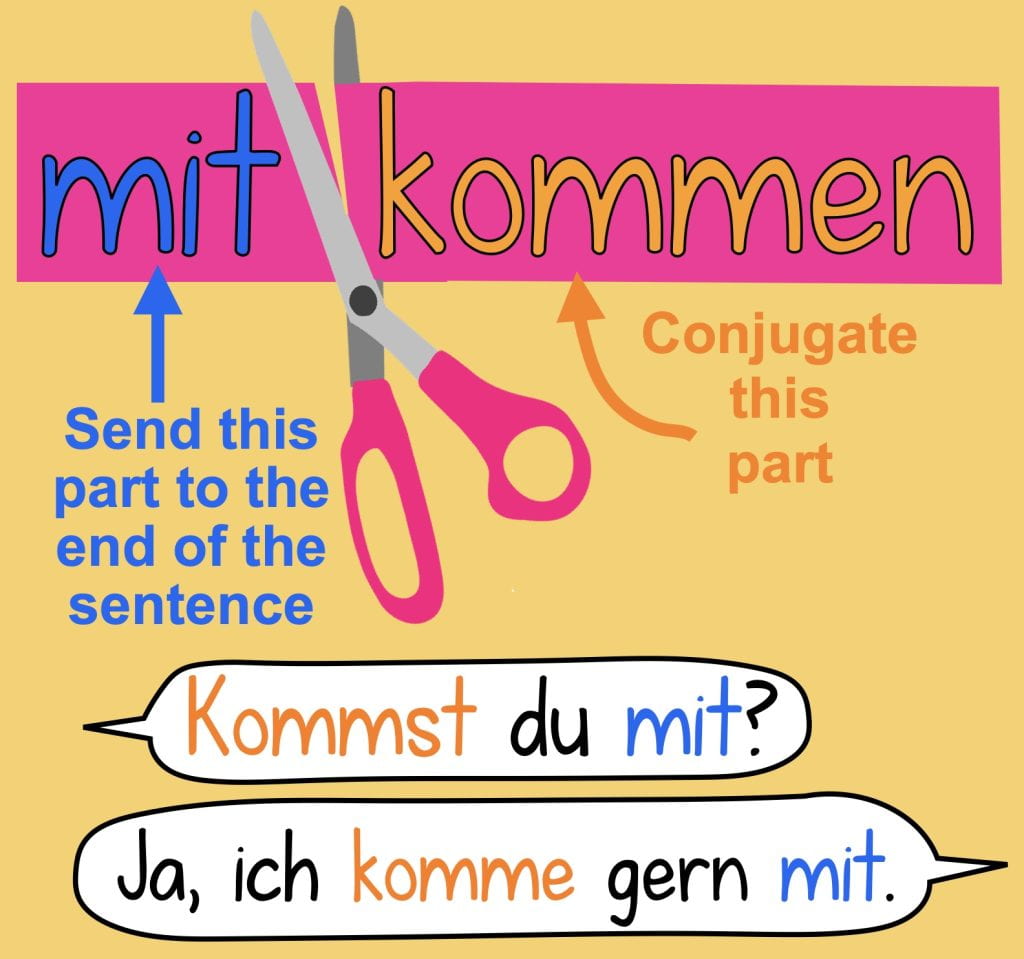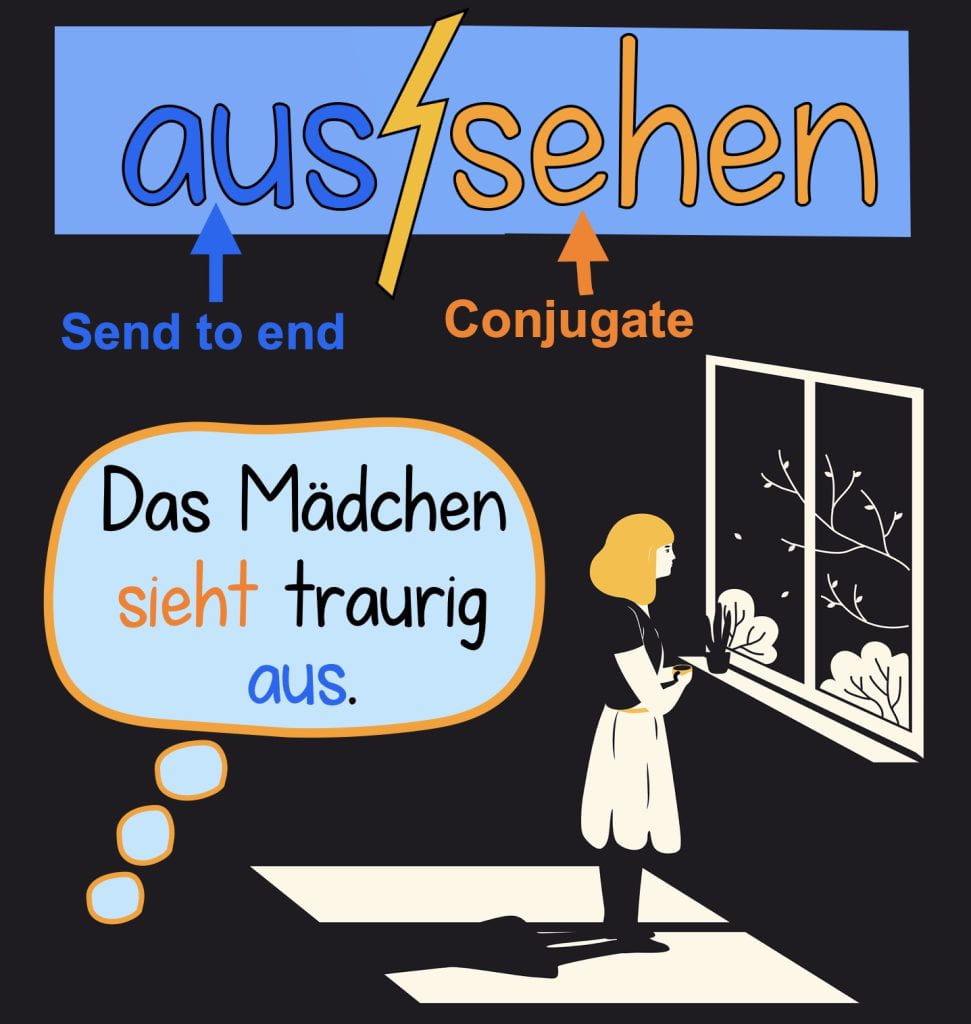Published by Roslyn Green in February 2023
Going Shopping for Groceries in German
Shoppers need to know the names for food packaging (e.g., bottle, tub, jar) and measures (e.g., kilogram, gram) as well as the vocabulary for the food itself. Here is a summary of packaging and measures with pictures and example sentences. For an A-Z list of foods in German, please visit this page.
Alternatively, jump straight in and work through the quizzes below.
Online Quizzes and Activities
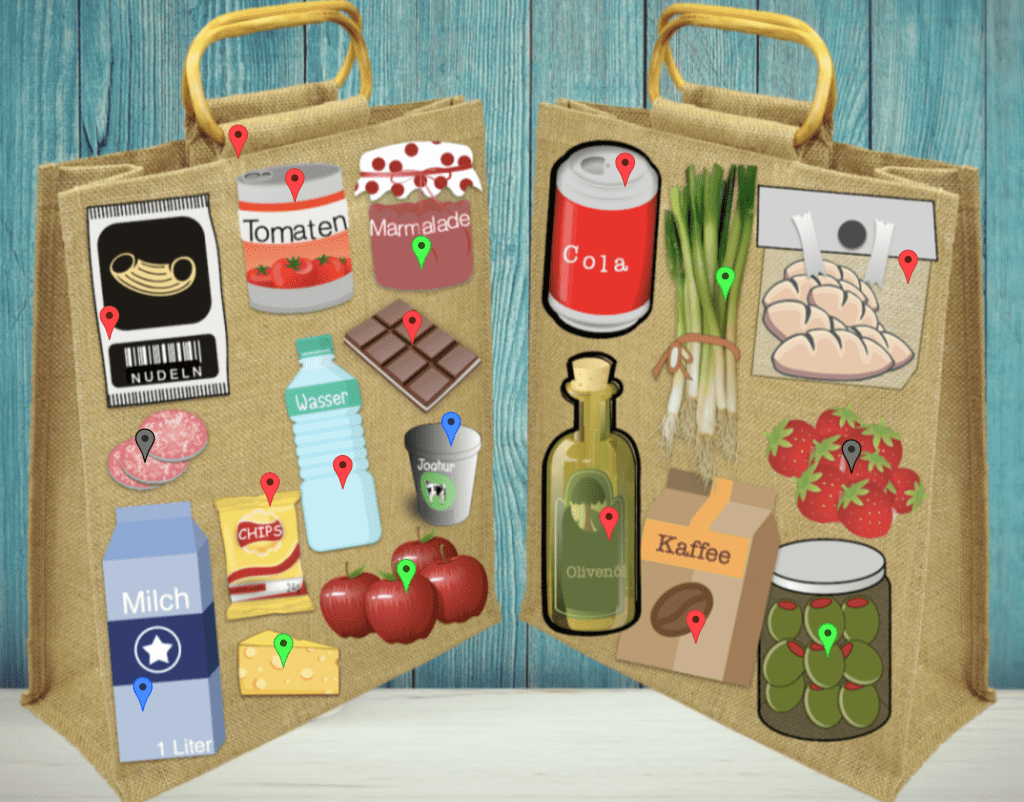
Match the Pin and Label Quiz: Lebensmittel einkaufen | Buying Groceries 🔵 🔴 🟢
- The pin for each noun is colour-coded: 🔵 for masculine nouns, 🔴 for feminine, and 🟢 for neuter.
- The sentence on each label refers to a food noun or food container in the accusative case: 🔵 einen | 🔴 eine | 🟢 ein.
Quiz: Essential Wording for Grocery Shopping
This quiz is based on Deutsch mit Inap‘s video on the left. The video is embedded in the quiz and you can watch it as you work through the questions.
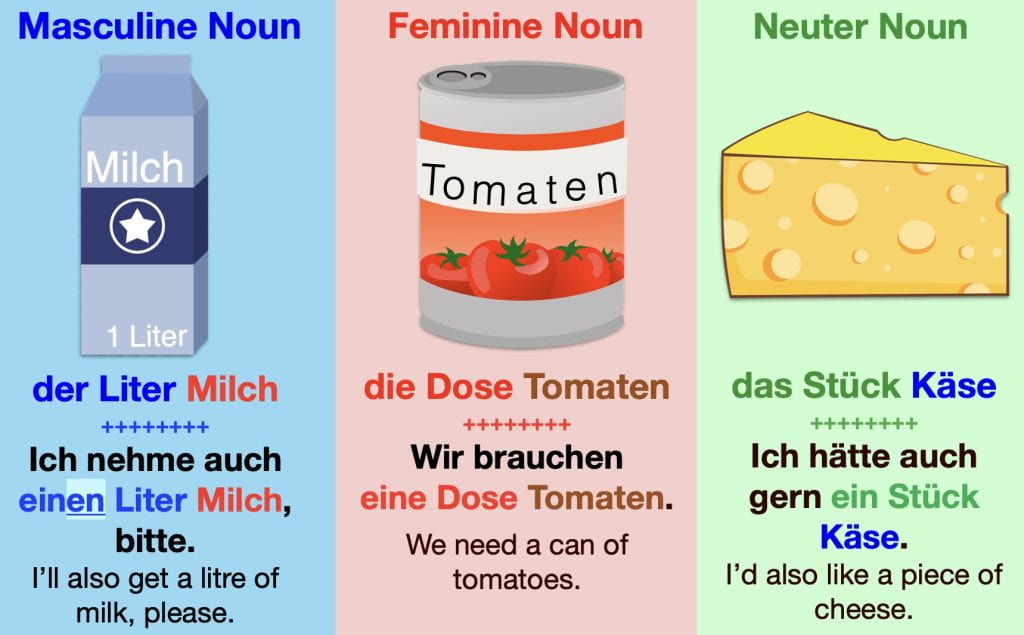
Quiz: Practising the Accusative Rules – Grocery Shopping
Revise the accusative rules for the indefinite article (einen, eine, ein) as well as the vocabulary for shopping.
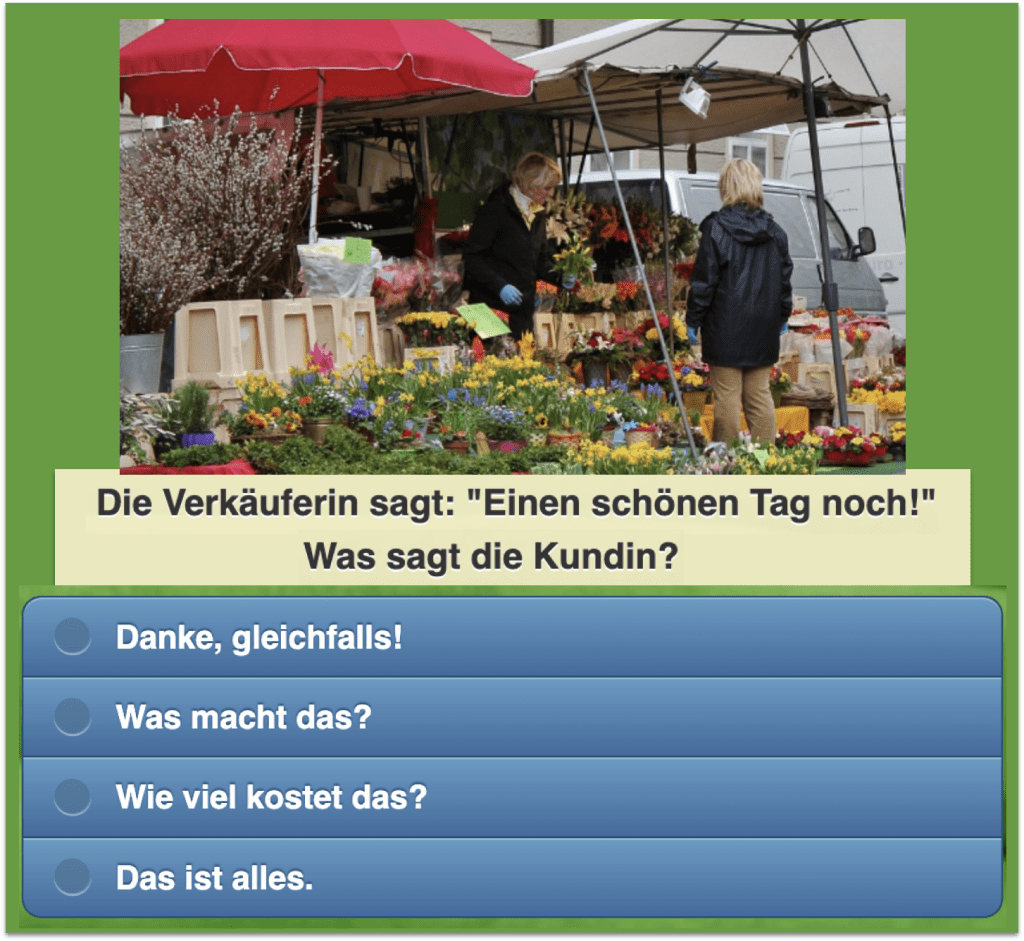
Multiple Choice Quiz: Einkaufen: Fragen und Antworten | Going Shopping: Questions and Answers
In this LearningApps Quiz, there are several snippets of conversation related to real pictures from grocery shopping. Click on the lightbulb 💡 (top left of quiz screen) for a list of all vocabulary. Inap‘s videos below will also help you to consolidate the wording in this quiz.
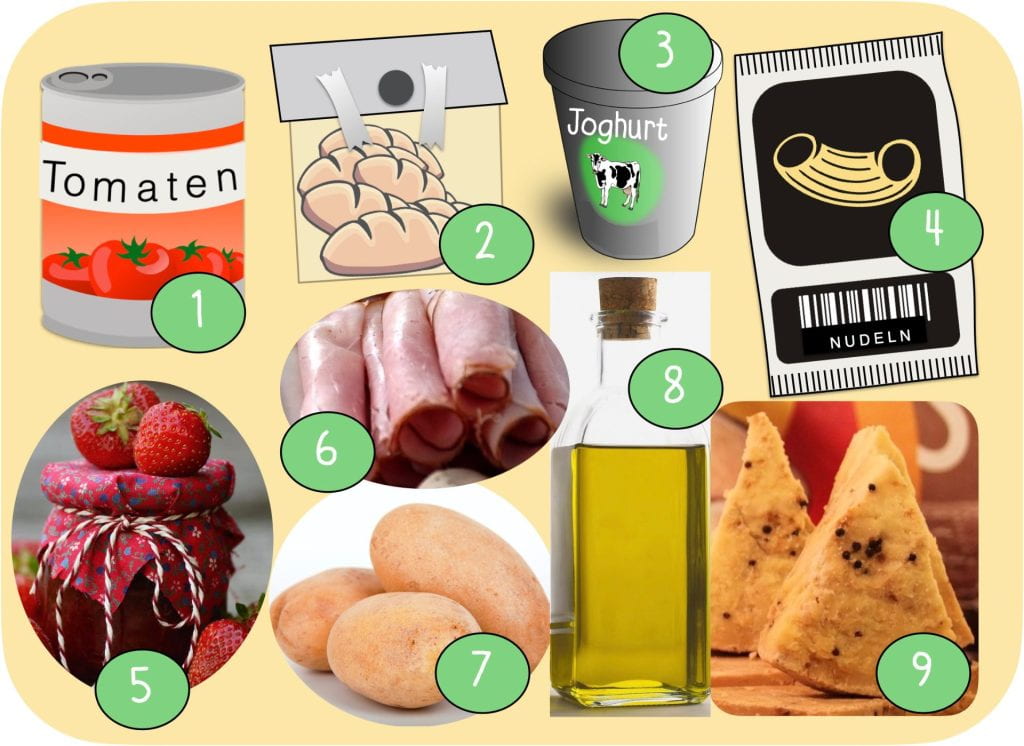
A Fill-the-Gap Quiz: Ein Dialog beim Einkaufen | A Shopping Dialogue
In this quiz, learners can revise wording for food and consolidate the vocabulary needed for a shopping dialogue in German.
Bildlexikon: Containers and Measures
Noun Key: masculine • feminine • neuter • plural
der Becher – tub, small carton
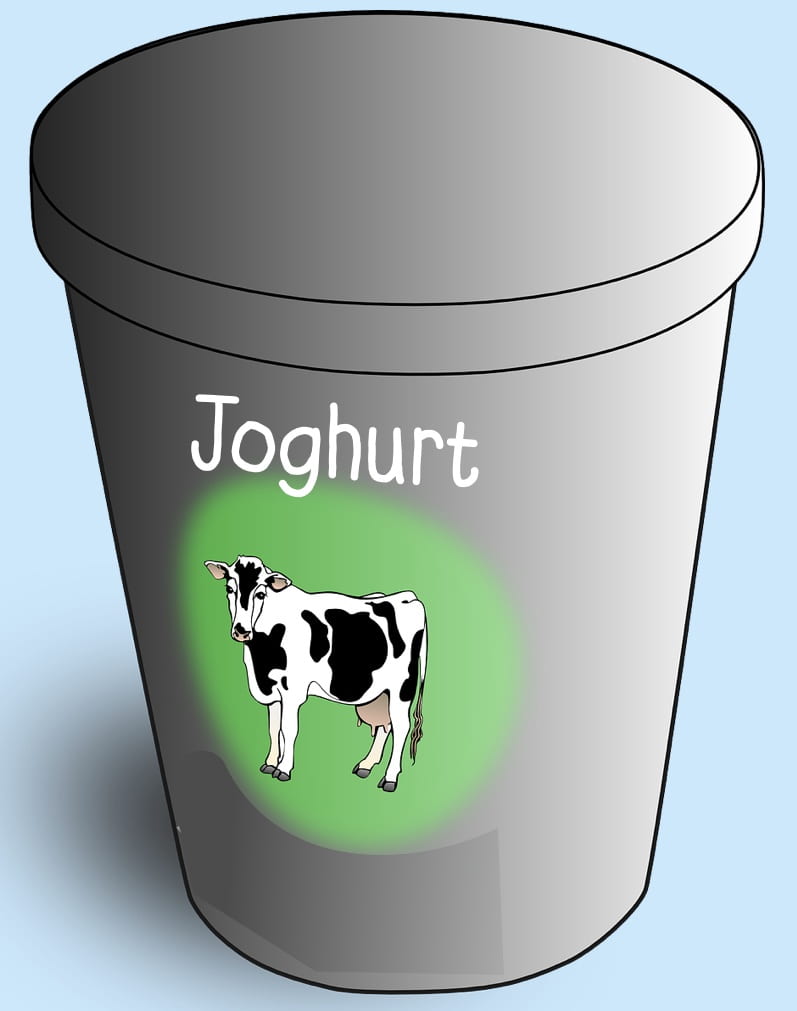
Oma möchte einen Becher Joghurt. ⇢ Grandma would like a tub of yoghurt.
das Bündel – bunch
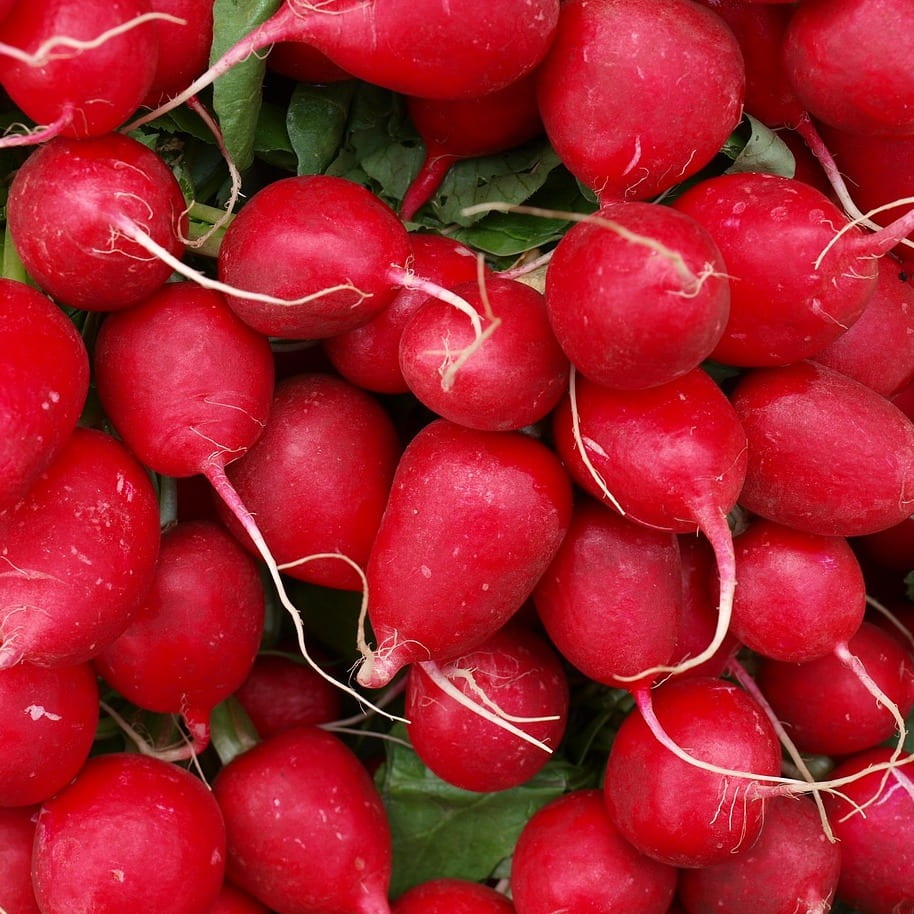
Vergiss nicht, ein Bündel Radieschen zu kaufen. ⇢ Don’t forget to buy a bunch of radishes.
die Dose – can

💬 Möchtest du eine Dose Cola? 💬 Ja, bitte. ⇢ 💬 Would you like a can of coke? 💬 Yes, please.
die Flasche – bottle

Wir müssen eine Flasche Olivenöl kaufen. ⇢ We must buy a bottle of olive oil.
das Glas – glass, jar
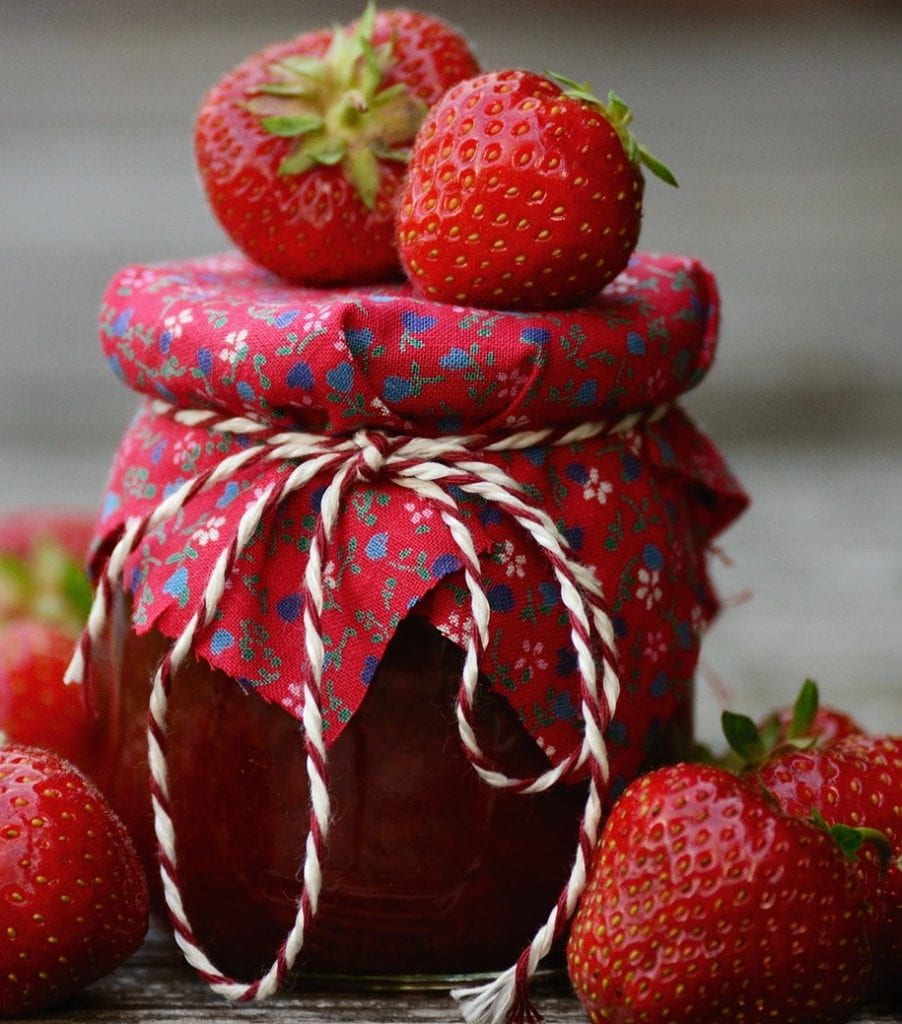
💬 Sie wünschen bitte? 💬 Ich nehme ein Glas Erdbeermarmelade. ⇢ 💬 What would you like? 💬 I’ll take / have a jar of strawberry jam.
das Gramm (-) – gram
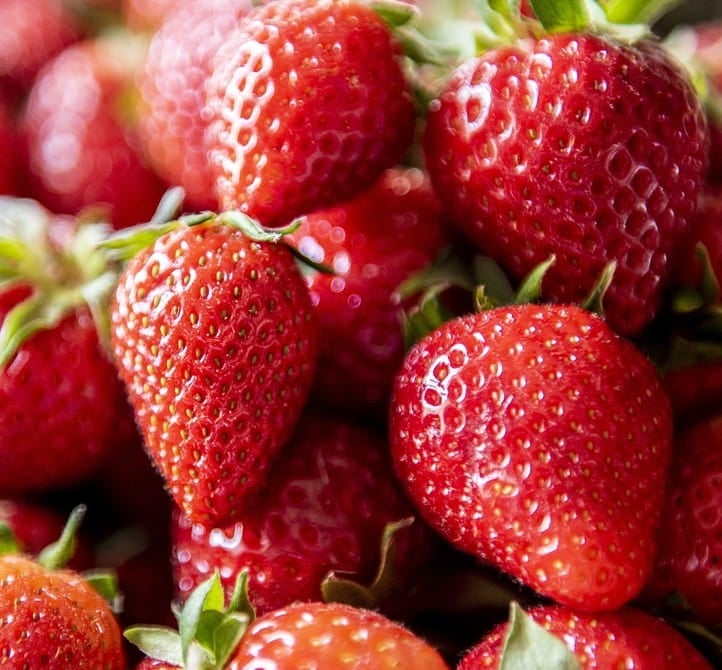
💬 Noch etwas? 💬 Ich möchte auch zweihundert Gramm Erdbeeren. ⇢ 💬 Anything else? 💬 I’d also like to get 200 grams of strawberries.
das Kilogramm, das Kilo (-) – kilogram
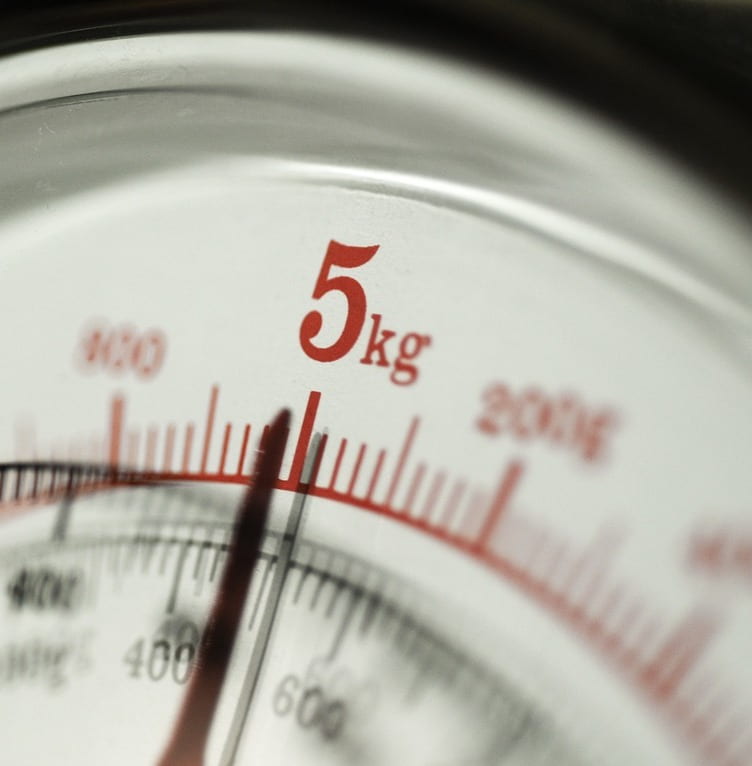
Ich hätte gern fünf Kilo Kartoffeln, bitte. ⇢ I’d like 5 kilos of potatoes, please.
der Liter – litre
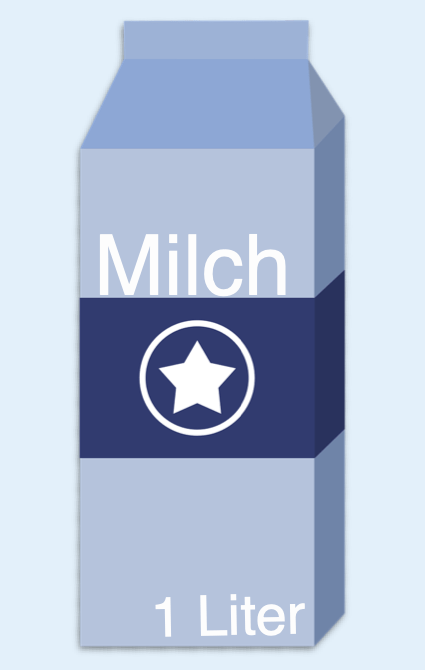
Wir brauchen einen Liter Milch. ⇢ We need a litre of milk.
die Schale – punnet, shallow container
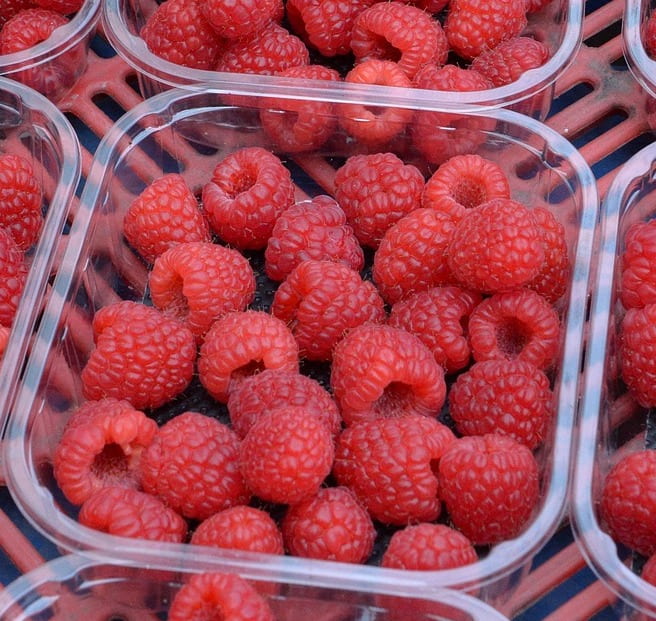
💬 Was darf es sein? 💬 Eine Schale Himbeeren, bitte. ⇢ 💬 What would you like? 💬 A punnet of raspberries, please.
die Scheibe (n) – slice
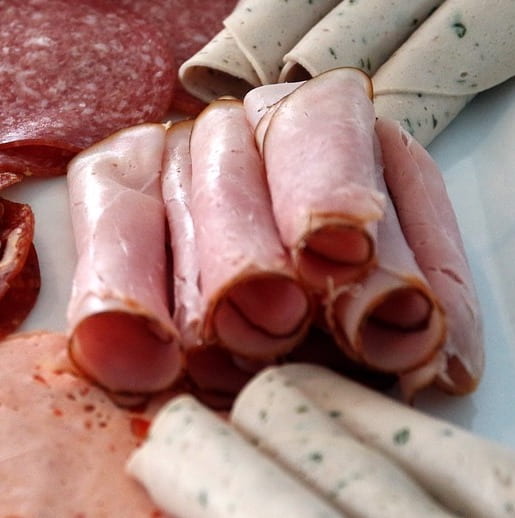
💬 Sie wünschen? 💬 Ich hätte gern fünf Scheiben Schinken, bitte. ⇢ 💬 What would you like? 💬 I’d like 5 slices of ham, please.
das Stück – piece

💬 Sonst noch etwas? 💬 Ich nehme auch ein Stück Käse, bitte. ⇢ 💬 Anything else? 💬 I’ll take / have a piece of cheese, please.
die Tüte – small paper or plastic bag
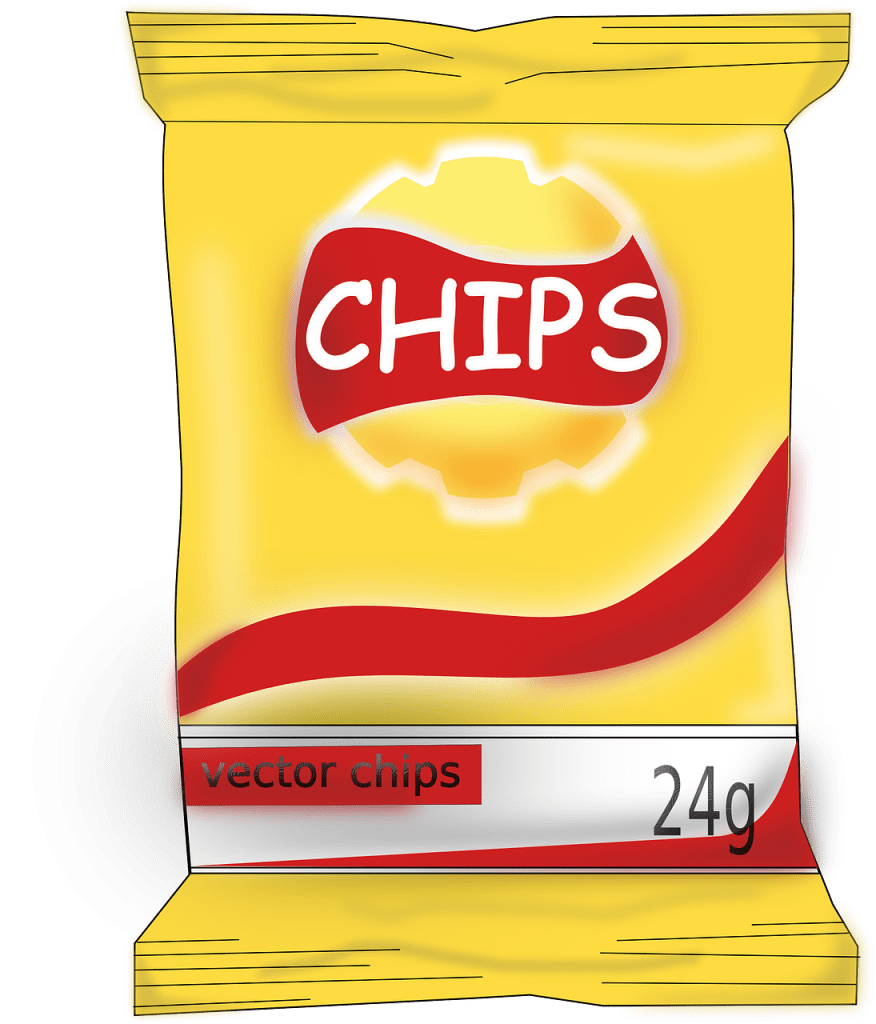
💬 Kannst du mir eine Tüte Chips kaufen? 💬 Ja, gerne. ⇢ 💬 Can you buy me a bag of chips? 💬 Sure.
Recommended Videos
The videos embedded below come from the Deutsch mit Inap YouTube channel. Inap is a German teacher in Nepal.
Lebensmittel einkaufen | Grocery Shopping (see related quiz above)
Dialoge beim Einkaufen | Shopping Dialogues














